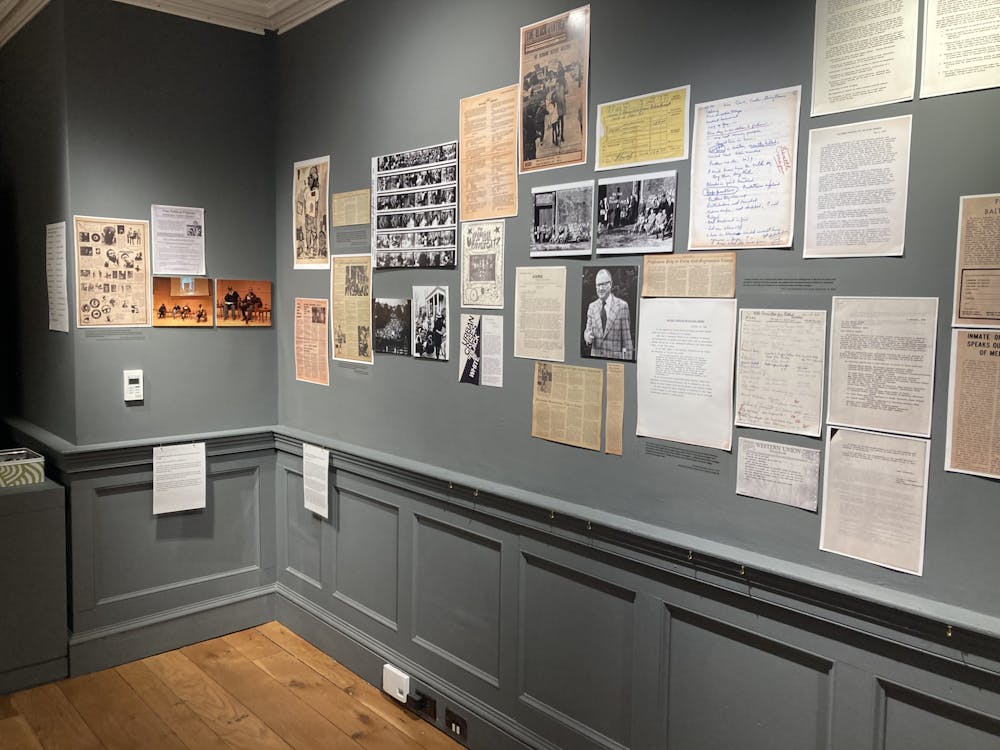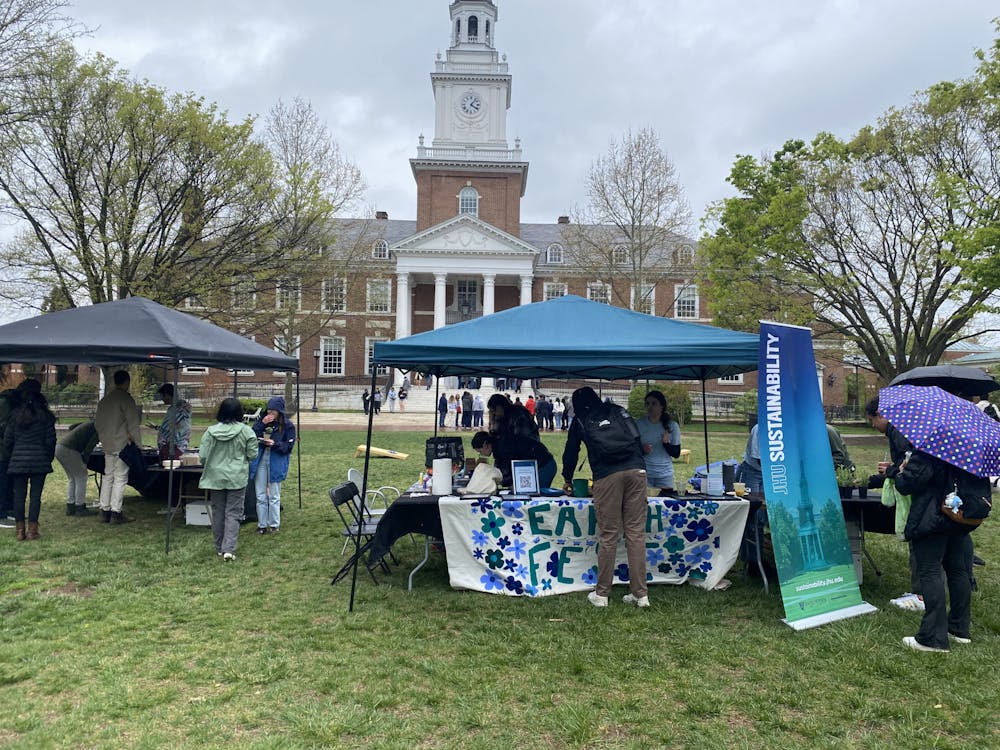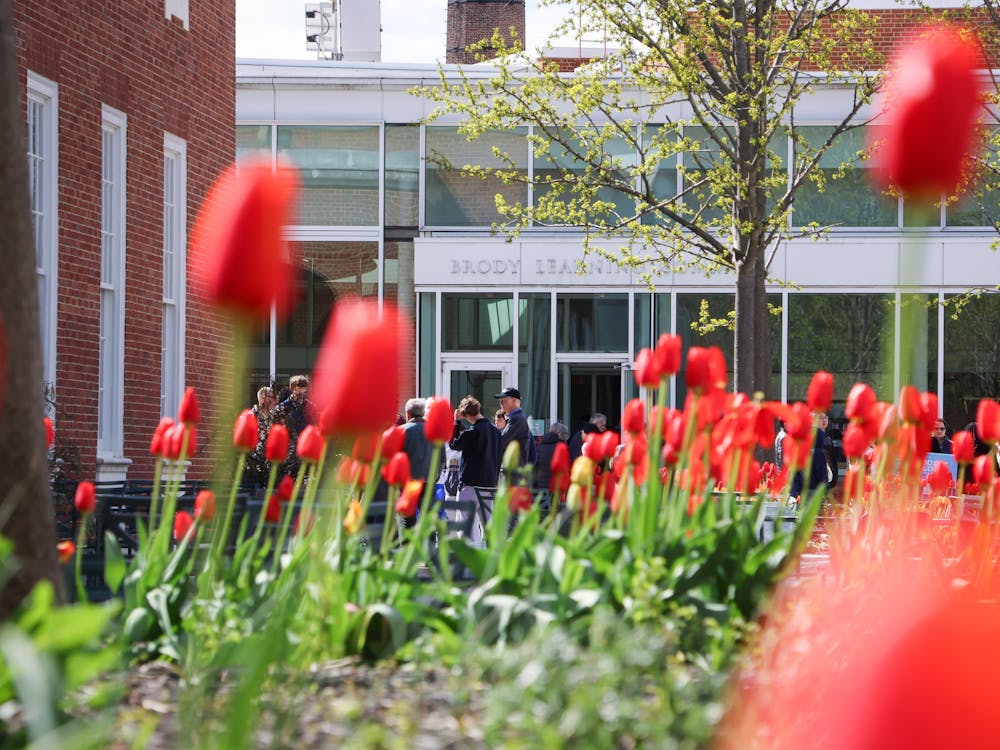Baltimore State’s Attorney Marilyn Mosby spoke about her fight for criminal justice reform and the future of activism in the city at the Interfaith Center on Thursday, Oct. 13. She specifically called upon the Hopkins community to bolster its efforts in advocating social change in Baltimore.
Mosby’s talk did not focus on her time in office, but rather was a call to action for students. She highlighted the potential of Hopkins students specifically to become the next generation of leaders in fighting discrimination.
“Collectively, Johns Hopkins, we have work to do, and the time to do it is now,” she said. “No one is more uniquely positioned to achieve racial, social, political and economic equality in this country, to solve the problems faced by people of color and the economically disadvantaged, than those of you sitting in this room tonight.”
Mosby also spoke about her personal struggle as a woman of color in politics.
“The skeptics wanted to know how I could have the audacity, as a young black woman, to run against a powerful white male incumbent,” Mosby said. “I asked myself if not me, then who? If not now, then when?”
She touched on the death of Freddie Gray and the ensuing peaceful protests and rioting that occurred in Baltimore just months after she took office, saying that they tested her convictions.
“At no point could I have imagined that, four months into my term, my pursuit of justice would be broadcast internationally following the death of a young black man by the name of Freddie Carlos Gray, Jr.,” she said. “I could never have imagined that doing my job would place me in the center of a national conflict between urban populations of color with the law enforcement agencies that are sworn to protect and serve them.”
Mosby called on Baltimore residents to ask what they could do to combat injustice in the city.
“Fighting for justice on behalf of Freddie Gray,” Mosby said, “I refused to give up. Justice is always worth the price paid for its pursuit. Every battle, every hurdle, every obstacle that we’ve overcome brought this nation one step closer to equality... As young, conscious, educated, seasoned progressive leaders, we all have a right to be outraged by what we’re seeing. But my question to you today is, what are you doing about it?”
Mosby questioned the audience many times, urging participants in attendance to take further action. She identified that talking about the issue is not enough to solve it.
“The most prolific leaders of our nation didn’t just march,” she said. “They refused to wait. They organized, they strategized, they engaged their communities and they implemented. If we’re not doing that, we have no business expressing outrage.”
Mosby stressed the important role that students can play in furthering the conversation about social justice.
“As young people who understand the power of unity, it’s up to us to recognize, embrace and develop our collective power,” she said. “While we’re here today having a candid conversation about race, ethnicity and social justice, clearly we have a lot more work to do. It starts with each and every one of you. Ask yourself, it not you, then who? If not now, then when?”
Sophomores Mikaela Inadomi and Abhijay Kumar responded to Mosby’s talk by speaking about their hopes of bridging the disconnect between Hopkins students and the wider community of Baltimore.
“There’s a huge issue with the Hopkins bubble,” Inadomi said. “People come here, they go to school, they don’t really get a sense that we’re in a community that has a lot of these issues. We should be talking about issues like race and the criminal justice system.”
Kumar agreed, adding that students often find themselves uncertain of how to engage with the issues faced by the Baltimore community.
“Coming to Baltimore where we don’t belong, we feel this disconnect,” he said. “We don’t necessarily know what to do with our ideas and thoughts. Given that we have such a powerful platform, there’s so much that we can accomplish. I think that this event is just of those catalysts that will hopefully spark a movement in this area.”
The Johns Hopkins University Social Justice and Equity Collective, which is comprised of the Office of Multicultural Affairs (OMA), Center for Social Concern, Center for Africana Studies and the Urban Health Institute, hosted the talk to promote an open forum about the recent issues of racial discrimination and police brutality in Baltimore.
Associate Professor of Political Science and Africana Studies Lester Spence identified that the Collective works to bridge this gap and help students integrate into the community.
“We do the work of social justice shoulder-to-shoulder with the citizens of Baltimore to deepen our understanding of each other, mobilizing our full power to inspire and become agents of change,” Spence said. “What we want to do going forward is the pedagogical and political work necessary to make sure that not only the bubble doesn’t exist for the students coming forward, but that Hopkins itself lives up to its mission so that we can both train and engage with the critical citizenry,” he said.
Kumar spoke about the change he would like to see after Mosby’s talk.
“I’d like to see more students participating in an intersection of Hopkins and Baltimore events,” he said. “If students were able to do more and delve into the Baltimore lifestyle, they’re not going to feel as disconnected.”
Inadomi added that people should experience some growth as they expand their understanding and beliefs, but that this might be unsettling for people who are not used to this.
“I want people to grow,” she said, “And I want people to be slightly uncomfortable in this conversation, because people just sit in their beliefs and they’re so closed minded a lot of the time. Open up your mind and think about other people’s life experiences that could be fundamentally different from you, especially if you grew up in a very homogenous society where everyone thinks like you, looks like you.”
Joseph Colón, the director of the OMA, spoke about the initial role of The Social Justice and Equity Collective in the Hopkins and Baltimore communities.
“Last year we helped our students and community heal and process what was happening here in Baltimore,” he said. “Our communities needed to make sense of it all. We met that need by opening our doors to the community and unpacking the unrest and tragedy.”
OMA invited Mosby to speak because it wanted to engage the community in a candid conversation about the longstanding issues that have taken a national spotlight in the last couple of years, particularly in Baltimore.
Carla Hopkins, the assistant director of diversity education, elaborated on why they find Mosby to be a particularly intriguing figure.
“As the youngest chief prosecutor in a major city in America, State’s Attorney Marilyn Mosby has utilized her legal expertise, her calling to public service and her uncompromising value to improve the communities in which she lives,” she said. “We gather tonight not to complain about what’s wrong, but to have someone to engage us in a conversation about making some things right.”















Please note All comments are eligible for publication in The News-Letter.